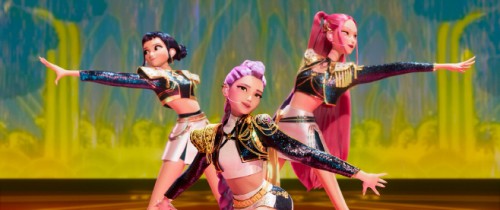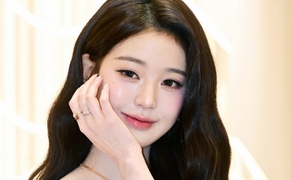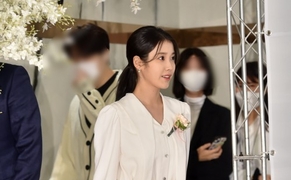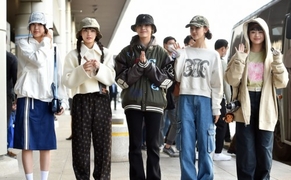 |
| A still from the Netflix animated film K-pop Demon Hunters. / Courtesy of Netflix |
K-pop Demon Hunters, a Netflix animated film blending K-pop glamor with occult action, is taking global audiences by storm. According to streaming ranking platform FlixPatrol on June 25, the film, released on June 20, has topped Netflix’s global chart for four consecutive days from June 21 to 24. It currently ranks No. 1 in 41 countries, including South Korea.
Produced by Sony Pictures Animation—known for Spider-Man: Across the Spider-Verse—K-pop Demon Hunters is helmed by Korean-Canadian director Maggie Kang, with Korean-American actors lending their voices. Co-directed by Chris Appelhans, the project marks the first time a K-pop-inspired universe has been developed by an international production team.
At first glance, the premise—girl group members moonlighting as exorcists—may sound quirky, but viewers have been quick to praise the film’s stylish worldbuilding, visuals, soundtrack, and characters. Critics have also given favorable reviews.
The story follows “Huntress,” a top K-pop girl group whose members—Lumi, Mira, and Joy—double as secret demon hunters. Their main adversaries include an evil spirit called Gwima and a five-member possessed boy band named “Lion Boys.” The contrast between high-gloss K-pop performances and scenes drawn from Korean folklore delivers a fresh and exciting spectacle. Animal spirits like tigers and magpies, straight out of traditional Korean art, take on significant narrative roles.
While the plot follows a familiar superhero arc, it also explores the emotional complexities of its characters. Lumi struggles to break free from her obsession with perfection, while Jinwoo carries a hidden trauma that keeps him from the spotlight. Their personal growth is depicted in quick but impactful moments, all within the frame of their idol lives.
The stage scenes are among the film’s highlights. For K-pop fans, references like light sticks, comeback promotions, fan sign events, and variety show appearances are lovingly recreated. The musical sequences are as polished as real-life idol performances. Notably, TWICE members Jeongyeon, Jihyo, and Chaeyoung perform “Take Down,” Huntress’s theme song, adding to the film’s sonic appeal.
The soundtrack also includes iconic K-pop acts like EXO and MeloMance. A standout moment is actor Ahn Hyo-seop, who voices Jinwoo, singing “Love, Maybe”—a track originally featured in his drama Business Proposal. The song enhances the character’s emotional arc within the film. Director Maggie Kang revealed that Huntress was styled after real-life groups like TWICE, BLACKPINK, and ITZY.
Scenes featuring K-food—ramyeon, hot dogs, tteokbokki, and gimbap—appear naturally throughout, adding cultural flavor with a light touch.
By fusing fantasy, tradition, and action into the idol framework—and executing it with polish in animated form—K-pop Demon Hunters is more than just an experiment. It’s a stylish, genre-blending success that’s redefining what a K-pop universe can be.
Most Read
-
1
-
2
-
3
-
4
-
5
-
6
-
7





















